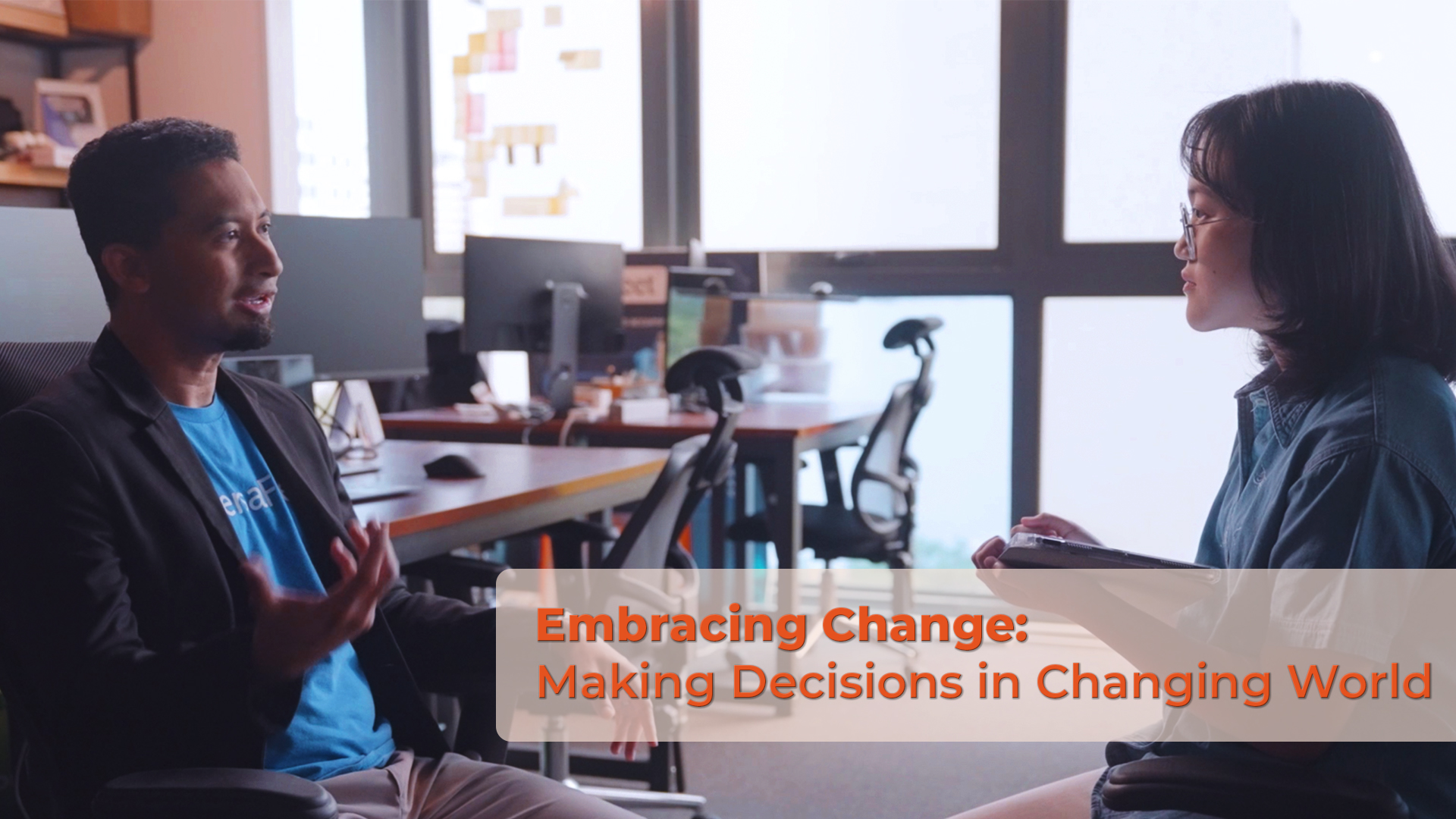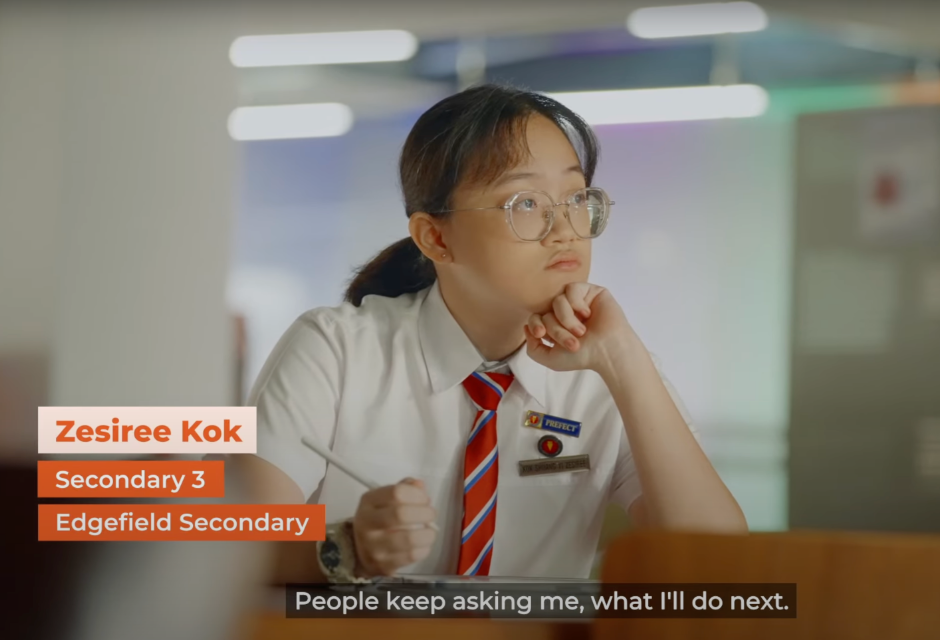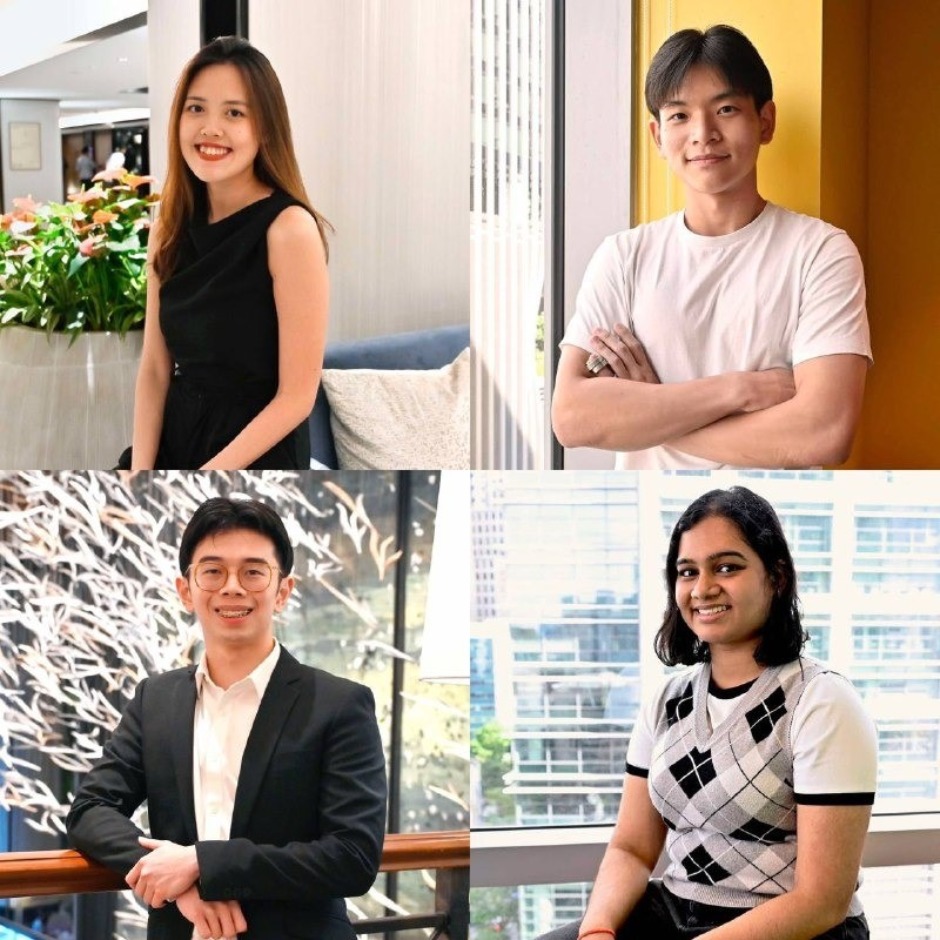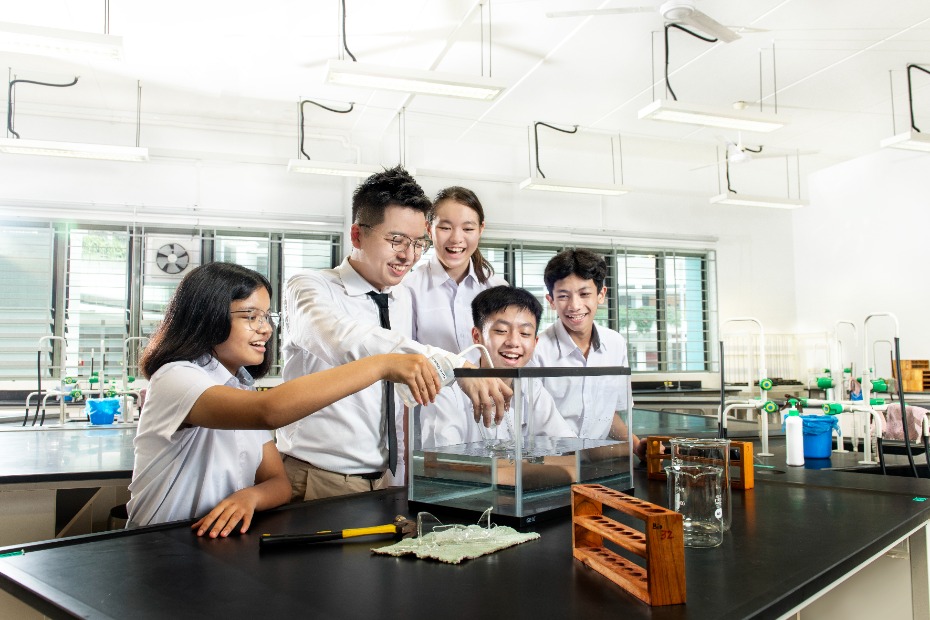Food for Thought
01 Nov 2016

Students at Dunearn Secondary School are putting what they’ve learned in their FSciTech classes into practice, including cutting down on eating fast food.
Ever since 14-year-old Secondary 2 student Kristy Lee learned about the calorie count of fast food, she has cut down on her intake and is now more careful about what she eats. “I am more aware of what I am eating, how often am I eating it and how many calories the food contains. Do I really need that energy or will it store as fats?” she says.
Lee is a student at Dunearn Secondary School and caloric content is just one of the lessons she’s learned during the school’s Applied Learning Programme (ALP) in FSciTech, or Food Science Technology.
The school started their ALP in 2015 with two objectives, according to Mr Nick Lee, the former Science HOD who is now the Upper Secondary Year Head. “Our first objective is to allow students to appreciate the relevance of their core subjects and experience real world applications. The other objective is to encourage students to look into STEM-related careers and learning opportunities in their tertiary education,” he says.
STEM is the acronym for the field of Science, Technology, Engineering and Mathematics.
The school decided to focus on a STEM-related ALP after looking at their students’ profiles and teachers’ strengths. As to why they decided to specialise in FSciTech, Mr Lee explains: “Food is something everyone needs and the nation needs good scientists to provide healthy food and also to raise awareness on what we can eat and what we should cut down on. FSciTech also wasn’t as popular with the other schools so we thought we could raise the profile of the subject.”
Lessons to be learned
The complete programme runs over two years with one term in Secondary 1 and two terms in Secondary 2, where the first term focuses on the food science aspect and the second deals with technology.
The weekly classes last for an hour and the students go through a mix of theory and hands-on activities during the lessons. Some of the things students have learned include how to make fruit juice, testing the electrolyte level of energy drinks and also how gummies are made, which turned out to be a bittersweet lesson. “I found out that some gummies are made using chemicals. It’s weird and you don’t really want to eat it once you find out. But it’s tasty,” says Lee.
For the technology portion, students will learn basic programming and go through activities such as electronically monitoring the temperature of a product. “We want our students to be exposed to electronics, which is a subset of FSciTech,” says Mr Lee.
Current lessons are conducted by a STEM educator from STEM Inc, which is a collaboration between Science Centre Singapore and the Ministry of Education, and which was set up to provide support for schools pursuing STEM-related ALPs. However, teachers are expected to take over lessons this year.
Before the start of any lesson, the teachers try out the activities for themselves and do some troubleshooting to ensure the correct outcomes. “We have an ongoing preview session where teachers come together and watch as the STEM educator carries out a demonstration. In a way, we are undergoing training as well. We are all new to FSciTech,” says Mr Lee.
Real world results
It’s clear the programme’s first objective of helping students experience real world applications is showing signs of success. While Lee has cut down on eating fast food, her classmate, Cheah Siew Mun, also 14, now takes special care not to keep food in the freezer for too long after a lesson on freezer burn.
“I learned that freezer burn reduces the nutrients in food,” says Cheah. “Before learning about it in class, I wouldn’t know about it and I wouldn’t care, but now I know we’re not supposed to keep things for too long in the freezer because it will reduce the amount of nutrients.”
The second objective of the programme, which is to get students to consider FSciTech as a future option, is also bearing fruit. “I used to think I want to be a doctor. Now that I know about food science, I started looking into it as an option,” says Lee.
Cheah agrees: “I’m very interested in science and I’m also interested in food. I think working in the industry can be very fun.”
Enjoying hands-on learning
The concept of ALP has caught on very well with the students. “I thought it would be just another theory-based subject but it was different and more hands-on so it was more exciting,” says Cheah. “And I began to look forward to it.”
“I used to think food is just food,” says Lee. “Going through ALP has made me change my thinking. You have to think about where the food comes from, and some use technology and chemicals, which is related to science, which is a subject I really like.”
Both students agree that their favourite part of ALP is the hands-on activities. “The class is another break time for me because it’s very relaxing. You get to learn about something new and different. My favourite part is the experiments – watching the teacher demonstrate how to do it and showing us different stuff,” says Cheah.
Their least favourite part? The theory portions.
Plans for the future
The programme is still relatively new and the teachers are planning more and better things for the future. For example, they are looking at opportunities for Secondary 3 students to get out of school and visit industry partners to expose them to possible careers.
Another potential idea being bandied about is a school café venture where students can work on improving the quality of fruit juice. “Perhaps our students can look into how to make the product better. Maybe brand it and market it in Dunearn café and be an entrepreneur. We want them to think about how they can further apply their knowledge. We also want them to explore like young scientists in a safe environment with the guidance of teachers,” says Mr Lee.





.jpg)